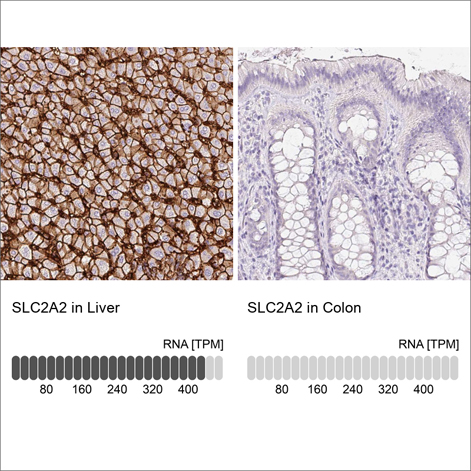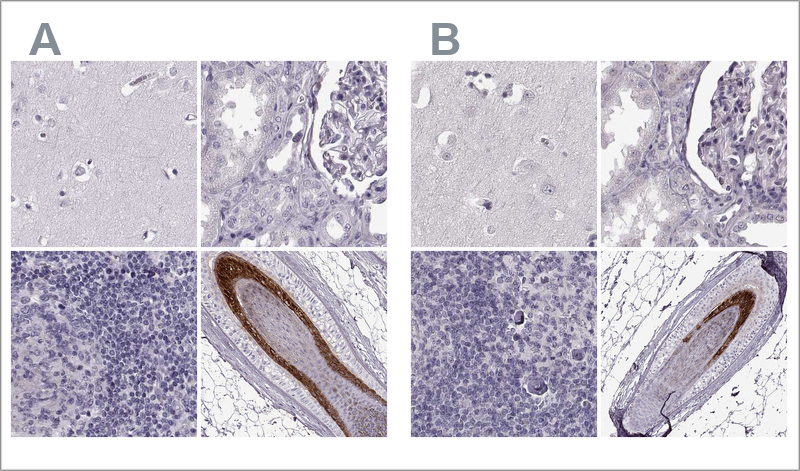Immunohistochemistry (IHC)
Learn how our antibodies are validated and characterized in IHC and find the protocol you need to be successful in your IHC experiment.
Immunohistochemistry (IHC) is the most widely used application in histopathological diagnosis and research for the detection of proteins in tissues and cells. The use of antibodies to determine the presence and localization of specific proteins in surgical specimens is an indispensable tool in modern pathology.
Recommended Protocols
In order to achieve the best results with our antibodies, make sure to use these recommended protocols. The protocols are optimized for our Triple A Polyclonals and PrecisA Monoclonals. Here you will also find our best advice for validation and troubleshooting in IHC.
IHC standard protocolIHC protocol – Ventana Discovery XT
Validation and characterization in IHC
Our antibodies, Triple A Polyclonals, and PrecisA Monoclonals are characterized and validated by IHC-staining of formalin-fixed paraffin-embedded (FFPE) normal and cancer tissues in a tissue microarray format (TMA).
Since IHC is a non-quantitative method our experienced personnel perform thorough manual analysis in an extensive number of human tissues to ensure specificity.
The antibodies used for the complete profiling of protein expression in normal tissues from 144 different individuals corresponding to 44 normal tissue types and cancer tissues from 216 different patients (duplicate samples of tumor tissues representing the 20 most common forms of human cancer). In total, 576 tissue cores are immunostained and analyzed for each antibody. For the cancer tissues, an effort is made to include both high and low-grade malignancies. The images of the immunohistochemically stained tissues are manually annotated. Each tissue is assessed for staining intensity, localization, and fraction of stained cells.


